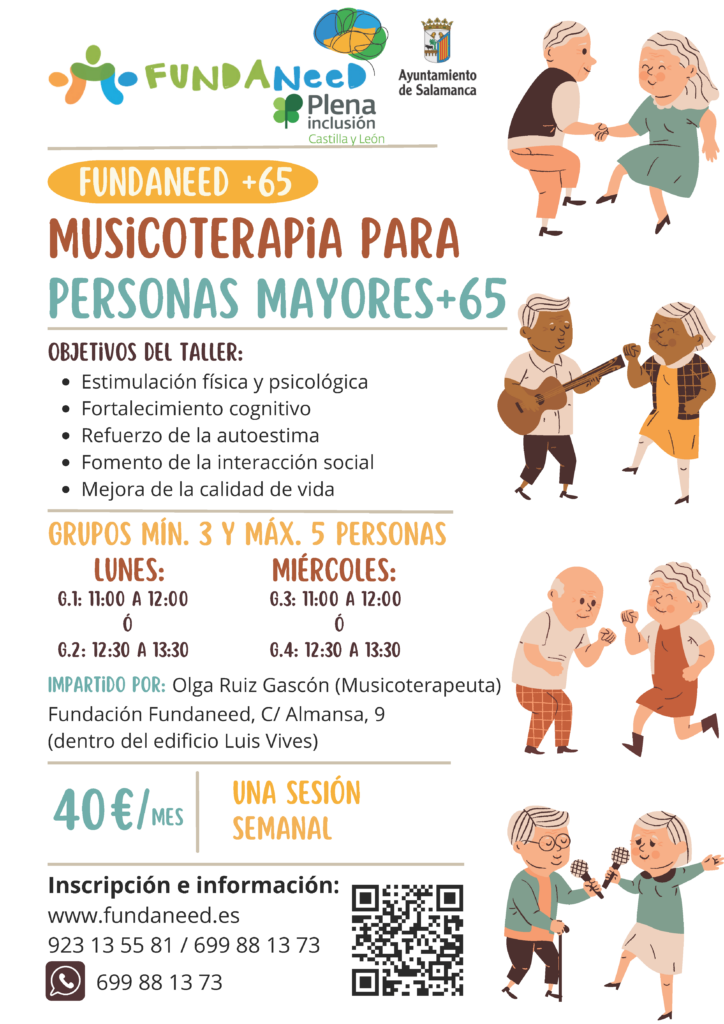Why this workshop?
Music therapy is the professional use of music and its elements (sound, rhythm, melody, harmony) by a qualified music therapist to facilitate and promote communication,
harmony) by a qualified music therapist to facilitate and promote communication, learning, expression and other
learning, expression and other relevant therapeutic goals, such as improving physical and mental health of the
and mental health of elderly people.
Music therapy aims to develop potentials and/or restore functions of the individual so that he/she can integrate his/her intrapersonal dimension.
integrate their intrapersonal and interpersonal dimensions, achieving a better quality of life based on the idea of
quality of life based on the idea that music can influence our emotions, behaviors and well-being,
behaviors and well-being.
What will we do in this workshop?
In these sessions we will carry out a series of personalized dynamics focused on improving
the quality of life of the users, trying to create a “meeting zone” with a suitable climate that allows the
that allows the emergence of creativity and emotional expression.
Objectives to be achieved
Cognitive strengthening: stimulating the memory through the evocation of memories with music is beneficial for people with
music is beneficial for people with neurodegenerative diseases such as Alzheimer’s.
Promotion of social interaction: it is especially useful to improve communication and expression in people with communication difficulties.
expression in people with communication difficulties, helping to strengthen their self-esteem.
Physical and psychological stimulation: music can be used to induce a state of calm,
helping to manage stress and anxiety. In addition, listening to music has been shown to
decreases the sensation of pain and can improve people’s recovery after surgery or illness because it produces significant
surgery or illness because it produces significant changes at the physiological level: blood pressure, respiration, heart rate, heart rate, blood pressure, respiration, heart rate
blood pressure, breathing, heart rate, etc.
Improves quality of life: the exploration and verbalization of emotions through music promotes emotional and social well-being.
music promotes the emotional and social well-being of people, improving their social skills.
skills.
What exercises or activities will we do?
Improvisation: spontaneous musical practice and interpretation, playing different instruments or singing in order to express emotions.
singing in order to express emotions and feelings.
Composition: creating songs to express our thoughts and feelings,
using voice and musical instruments.
Song recreation: active listening to a well-known song to evoke and retrieve memories in people with
memories in people undergoing treatment for diseases such as Alzheimer’s and dementia.
Music for relaxation: use of music as a tool to induce a state of calmness, relieve tensions and attend to
to induce a state of calm, relieve tensions and attend to emotional well-being.
Use of percussion instruments: manual activities to improve their handling of instruments (drums, tambourines, tambourines, etc.).
instruments (drums, tambourines, rattles, xylophones, etc) to improve their mobility,
attention span and expression.
Personalized attention with small groups of 3 to 5 people. Don’t miss out on your place!

